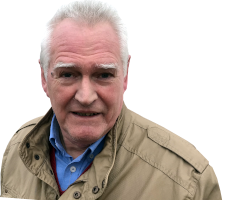search
date/time
 | Yorkshire Times A Voice of the Free Press |

Mike Tilling
Arts Correspondent
1:04 AM 19th August 2023
arts
Review
Classical Music: Shostakovich Symphony No. 14
Dmitri Shostakovich.
Symphony No. 14 Six Verses of Marina Tsvetayeva, Op.143a
BBC Philharmonic. Conductor John Storgårds
Elizabeth Atherton (soprano), Jess Dandy (alto), Peter Rose (Bass). Turi Torchinsky leader.
Chandos CHAN 5310
https://www.chandos.net/
Symphony No. 14 Six Verses of Marina Tsvetayeva, Op.143a
BBC Philharmonic. Conductor John Storgårds
Elizabeth Atherton (soprano), Jess Dandy (alto), Peter Rose (Bass). Turi Torchinsky leader.
Chandos CHAN 5310
https://www.chandos.net/

You have to be sympathetic to any artist living with fear, although many others in Russia shared the experience. Later, of course, Shostakovich was to become a hero of the Soviet Union; he represented Russia at international conferences and, unlike many others of his golden generation (Prokofiev, Stravinsky, Rachmaninov), did not take the option of moving abroad.
By the time he was ready to write his fourteenth symphony, most of the shackles of ‘socialist realism’ had been removed, and he had a free hand to compose as he saw fit. The result is a symphony in eleven sections that are entirely introspective. It’s an unusual structure that leads to limited development; instead, there is a restless search delivered in a series of short statements. The orchestra is small, again emphasising the intimacy, and perhaps Shostakovich is consciously moving away from the grandiose gestures of earlier pieces.
By the early 20th century, it was not unusual for orchestral playing to be leavened with voices. We are treated to two voices that are relatively unusual today, as well as the more familiar soprano.
First of all, in Jess Dandy, we have a genuine contralto who sings with a dark, vibrant range. I understand (definitely no expertise here) that natural contraltos are taught to sing as mezzos since there are so few operatic roles written for that voice type. However, popular music has had no difficulty accommodating the likes of Cher, Sade, or Annie Lennox.
Paired with her is Peter Rose, who is a bassist. This voice is far more commonly used in Russia than elsewhere and, indeed, seems to be particularly associated with that country since an Oktavist (basso profundo) has a special place in Russian liturgical music.
Contrasting with these two is the lyric soprano of Elizabeth Atherton. Noted for her versatility, she complements the other two. She is all lightness and, if not joyous, at least lighter-hearted.
The opening of Section 1 is very quiet and reflective. Peter Rose comes in, and the profundity of what we are about to hear becomes apparent. Later, we hear Section 2’s nervous strings soothed by Atherton’s calming voice, and then a duet in Section 3. The pattern is set, but I have to issue a warning that with titles like Suicide, In the Sante Prison, or The Poet’s Death, listeners are not in for a relaxing ride. Each of the sections is an interpretation of the work of poets who died young.
I am not sure who, but someone once commented that all Russian music is 'sad’. Shostakovich’s Fourteenth Symphony seems to support this observation, and you can hear the influence of this sadness in pieces like Gorecki’s Symphony of Sorrowful Songs.
Interpretations of six works by a single poet, Marina Tsvetayaeva, open the CD.
The BBC Philharmonic, under the direction of conductor John Storgårds, makes beautiful work of interpreting all of these pieces. Not easy when the mood of the whole is unremittingly downbeat.